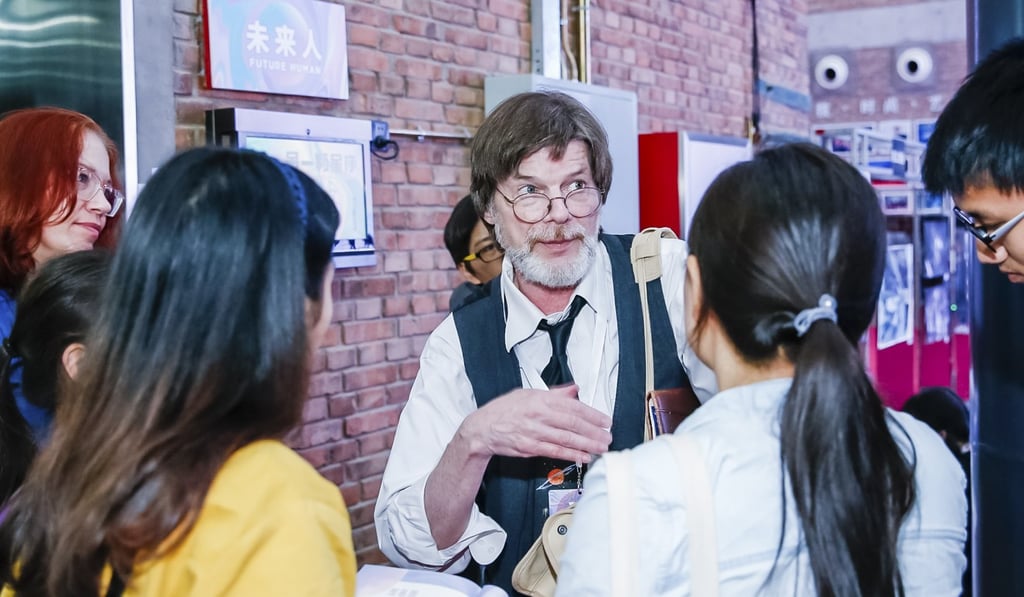Chinese sci-fi writer on being name-checked by Game of Thrones creator George R.R. Martin and winning place at workshop he teaches
- Game of Thrones author sponsors Terran Prize, which this year was awarded to Zhou Wen, a 24-year-old science fiction author and a fan of his writing
- Zhou, who spoke at a weekend sci-fi convention in Beijing, says Chinese women writers like her have a different voice than male writers

Budding Chinese science fiction writer Zhou Wen could not believe it when George R.R. Martin mentioned her name in a Twitter post last month. She is a big fan of the author, whose fantasy novel series A Song of Ice and Fire was adapted to make the hit HBO TV series Game of Thrones.
In his post, the author named Zhou as the winner of this year’s Terran Prize, which is sponsored by Martin, which gives her a scholarship to take part in this year’s Taos Toolbox workshop in the US state of New Mexico, at which he will teach.
The two-week writing workshop is open to 18 experienced fantasy and science fiction writers each year, who each pay more than US$3,000 to study under Nancy Kress and Walter Jon Williams, established authors in the genre.
“The competition for the scholarship is intense,” Zhou says. “It is only open to writers who work in English but come from non-English-speaking countries. It will be my first time to set foot in America. I am looking forward to meeting Martin. Of all his works, I love Sandkings, which won the Hugo Award [for best science fiction or fantasy novelette in 1980] the most.”

The 24-year-old was among the budding authors who gave talks at the Another Planet Science Fiction Convention, held in Beijing on May 25 and 26.